Saturday, September 18, 2004
A Reply to a Cardiologist
wordworks2001
Banned
Join Date: May 2004
Posts: 133
Test5629
------------------------------------------------------------------------
At the risk of insulting you more, remember what I said about Dr. Wayne spending 5 UNINTERUPTED hours with me? Check out this article from the New York Times.
Michael J. Okoniewski for The New York Times
Tell the Doctor All Your Problems, but Keep It to Less Than a Minute
By MEREDITH LEVINE
Published: June 1, 2004
woman walks into a doctor's office. The doctor says, "What brings you here today?" The woman starts to answer. Eighteen seconds later, the doctor interrupts.
This may sound like the setup to a lame joke but it is a scene played out regularly in doctors' offices across the country. Two decades ago, in 1984, researchers showed that on average, patients were interrupted 18 seconds into explaining their problems. Fewer than 2 percent got to finish their explanations.
Advertisement
But at the time, the office or bedside manner of doctors was considered unworthy of research.
"We were thought of as weirdos," said Dr. Howard Beckman, co-author of the study and a clinical professor of medicine at the University of Rochester.
Today, however, the rise of managed care has helped make doctor-patient communication a major issue that is drawing increasing interest from researchers.
Researchers have linked poor communication to misdiagnoses, the ordering of unnecessary tests, and the failure of patients to follow treatment plans.
"When communication doesn't work and patients have good outcomes, it's by chance," said Dr. Sherrie H. Kaplan, an associate dean in the college of medicine at the University of California, Irvine, and a leading researcher in the field.
Just how often does communication between doctors and patients run amok? Research shows that only 15 percent of patients fully understand what their doctors tell them, and that 50 percent leave their doctors' offices uncertain of what they are supposed to do to take care of themselves. Studies suggest that women are better at building relationships with their doctors than men. The typical number of questions a male patient asks during a 15-minute doctor's visit is zero, while women average six, according to a study by Dr. Kaplan.
Doctors as well as patients may suffer the consequences of communication gone awry. A common theme of malpractice lawsuits is a breakdown in communication, said Dr. Wendy Levinson, vice chairwoman of the University of Toronto's department of medicine. What often prompts people to sue their doctors, said Dr. Levinson, who has studied the issue extensively, "is the feeling that they were not listened to, that they didn't have the doctor's full attention."
In one study, Dr. Levinson and Dr. Nalini Ambady, a psychologist at Harvard, compared the office manner of surgeons who had been sued multiple times with those who had never been sued. Doctors with "a more dominant tone of voice," they found, were more likely to have been sued by patients. Doctors whose voices contained more warmth were less likely to have been sued.
In many instances, the lawsuits have little to do with physical harm to the patient, the researchers said, and much to do with the relationship between doctor and patient. Patients who sue often feel abandoned by their doctors.
Advice by experts on how doctors can most effectively communicate with patients reads as if it came straight out of a relationship self-help book: Listen carefully, ask open-ended questions, do not interrupt, make eye contact and indicate that you care.
Good doctors, communication experts say, do not pepper patients with questions; patients, studies find, do not like that.
A doctor's medical competence is of course important. And patients sometimes stick with doctors they feel are cold or uncommunicative in the belief that a physician's technical and diagnostic skills are more important than bedside manner. But, Dr. Levinson said, competence and communication are equally important.
"We should consider excellence a combination of the most technically sophisticated skills and knowledge and the best communication skills," she said, "because that will get us the best outcomes from our patients."
Research has shown that there is a clear connection between positive doctor-patient relationships and improvements in the patients' health.
In several studies, Dr. Kaplan and her husband, Dr. Sheldon Greenfield, also of the University of California at Irvine, found that good doctor-patient communication resulted in lower blood sugar levels in diabetic patients, and lower blood pressure in hypertensive patients.
Banned
Join Date: May 2004
Posts: 133
Test5629
------------------------------------------------------------------------
At the risk of insulting you more, remember what I said about Dr. Wayne spending 5 UNINTERUPTED hours with me? Check out this article from the New York Times.
Michael J. Okoniewski for The New York Times
Tell the Doctor All Your Problems, but Keep It to Less Than a Minute
By MEREDITH LEVINE
Published: June 1, 2004
woman walks into a doctor's office. The doctor says, "What brings you here today?" The woman starts to answer. Eighteen seconds later, the doctor interrupts.
This may sound like the setup to a lame joke but it is a scene played out regularly in doctors' offices across the country. Two decades ago, in 1984, researchers showed that on average, patients were interrupted 18 seconds into explaining their problems. Fewer than 2 percent got to finish their explanations.
Advertisement
But at the time, the office or bedside manner of doctors was considered unworthy of research.
"We were thought of as weirdos," said Dr. Howard Beckman, co-author of the study and a clinical professor of medicine at the University of Rochester.
Today, however, the rise of managed care has helped make doctor-patient communication a major issue that is drawing increasing interest from researchers.
Researchers have linked poor communication to misdiagnoses, the ordering of unnecessary tests, and the failure of patients to follow treatment plans.
"When communication doesn't work and patients have good outcomes, it's by chance," said Dr. Sherrie H. Kaplan, an associate dean in the college of medicine at the University of California, Irvine, and a leading researcher in the field.
Just how often does communication between doctors and patients run amok? Research shows that only 15 percent of patients fully understand what their doctors tell them, and that 50 percent leave their doctors' offices uncertain of what they are supposed to do to take care of themselves. Studies suggest that women are better at building relationships with their doctors than men. The typical number of questions a male patient asks during a 15-minute doctor's visit is zero, while women average six, according to a study by Dr. Kaplan.
Doctors as well as patients may suffer the consequences of communication gone awry. A common theme of malpractice lawsuits is a breakdown in communication, said Dr. Wendy Levinson, vice chairwoman of the University of Toronto's department of medicine. What often prompts people to sue their doctors, said Dr. Levinson, who has studied the issue extensively, "is the feeling that they were not listened to, that they didn't have the doctor's full attention."
In one study, Dr. Levinson and Dr. Nalini Ambady, a psychologist at Harvard, compared the office manner of surgeons who had been sued multiple times with those who had never been sued. Doctors with "a more dominant tone of voice," they found, were more likely to have been sued by patients. Doctors whose voices contained more warmth were less likely to have been sued.
In many instances, the lawsuits have little to do with physical harm to the patient, the researchers said, and much to do with the relationship between doctor and patient. Patients who sue often feel abandoned by their doctors.
Advice by experts on how doctors can most effectively communicate with patients reads as if it came straight out of a relationship self-help book: Listen carefully, ask open-ended questions, do not interrupt, make eye contact and indicate that you care.
Good doctors, communication experts say, do not pepper patients with questions; patients, studies find, do not like that.
A doctor's medical competence is of course important. And patients sometimes stick with doctors they feel are cold or uncommunicative in the belief that a physician's technical and diagnostic skills are more important than bedside manner. But, Dr. Levinson said, competence and communication are equally important.
"We should consider excellence a combination of the most technically sophisticated skills and knowledge and the best communication skills," she said, "because that will get us the best outcomes from our patients."
Research has shown that there is a clear connection between positive doctor-patient relationships and improvements in the patients' health.
In several studies, Dr. Kaplan and her husband, Dr. Sheldon Greenfield, also of the University of California at Irvine, found that good doctor-patient communication resulted in lower blood sugar levels in diabetic patients, and lower blood pressure in hypertensive patients.
Subscribe to:
Post Comments (Atom)








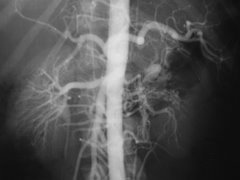

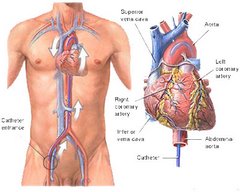
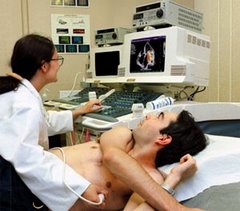
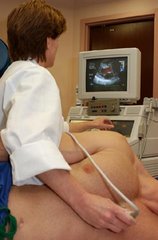
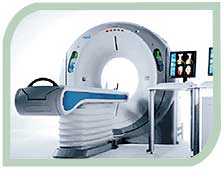
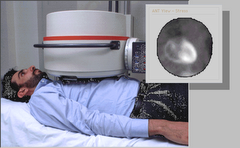
1 comment:
It seems to me that the most vital diagnostic tool is
a listening ear. All else is merely peripheral to
the attuned ear.
Post a Comment